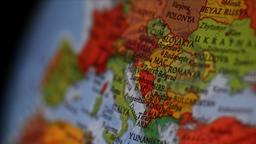
With the latest worrying developments in the international scene, I believe it is time for the EU to rethink its policy approach towards Turkey. Both Turkey and the EU face the same difficulties, especially at the moment in the Middle East. Together we would have much greater strength to influence the events to come. In that context, discussion of “EU- Turkey Relations” will remain incomplete unless without first examining closely the interaction between Turkey and Europe.
Turkey and the rest of Europe share a common historical heritage from ancient times. The major currents of modern history that originated in Europe, even those like the Renaissance, Reformation, Enlightenment, and perhaps especially the French Revolution, which had a transformative impact on the world scene, also played a key part in the quest for renewal of the Ottoman Empire from which the creation of modern Turkey sprang.
This relationship process has had a profound impact on both sides. It inspired Mozart to compose the “Ronda alla Turca”, and also Ayvazosky in his paintings and Pierre Loti in his books. It is humanitarian, as the Ottoman Empire was also the refuge to European Jews so badly sought in 1492 and again in the late 1930s and 1940s. It is security, as Turkey has been contributing to NATO or the CFSP (Common Security and Foreign Policy) or various security cooperation arrangements. It is economic, as Turkey is Europe’s sixth-largest economy. It certainly is political, as the Ottomans were part of the Concert of Europe in the 19th century, while modern Turkey was among the early members of the Council of Europe in the 20th century, joining not long after it was set up.
And, as you all know, Turkey has pursued the goal of joining the European Communities since 1963, which, in time, have successfully evolved into today’s European Union.
In our eyes, EU membership is part of this strategic process of transformation and modernization of Turkey.
When compared with the existing members of the European Union, the road that Turkey took towards accession has been a long one. It has not always as smooth-running as one would have hoped for, either.
Over the years, there were many ups and downs. But the direction was towards ever more integration. The decision to establish a Customs Union in 1995 was an important highlight of this period. Turkey and the EU have since been bound by tight economic links and the Turkish economy was fully integrated to that of the EU. Turkey was and remains the only candidate country that has possessed a successful Customs Union with the EU, before becoming a member.
Then there have been two recent turning points in our relations: the Helsinki European Council decision of December 1999, whereby Turkey was declared a candidate country, and the subsequent step to open negotiations with Turkey in October 2005.
These two visionary decisions are also critical for the substantive transformation of the social, cultural and political fabric of Turkey in a direction that Turkish people have deserved and given a political mandate for.
More than a decade has passed since the start of the negotiation process with the EU. Ten chapters have been opened and one provisionally closed, a pace not reflecting Turkey’s performance. This is due to the domestic political considerations of certain member states which have been allowed to play a hugely disproportionate role in EU-Turkey relations.. Bringing our membership process thus far wasn’t easy. The road was full of obstacles and it required dedication and hard work to tackle them.
What remains of this road will be no different. The enlargement of the European Union is not an easy process and has never been one. A milestone in this process is yet to come since Turkey will not give up the goal of joining this peace project in Europe. We continue with our work at achieving the opening benchmarks for future chapters. The reforms will be completed. The harmonization process with the EU is truly all-encompassing. “Ownership” i.e. making all its details and conditions fully our own, has become our motto in the accession process. Our institutions, academia, and civil society and according to the latest surveys especially the youth are, despite all the setbacks, engaged with a view to integrating all of our country fully into this modernization project.
But every dance requires a partner. The EU must commit itself in a way that encourages candidates and also honors promises. We need stability and predictability in the process. This support has been generously given to waves of previous accession candidates but never fully to Turkey. Whereas, encouragement would transform the nature of our relationship.
As the European Commission has repeatedly reminded the Union, the EU as a whole must not only stick to its commitments, but also act in accordance with the previous decisions taken by consensus in its bodies. No country has ever had to defend the decisions previously taken by the leaders of the EU as much as Turkey has had to.
Both Turkey and the EU have much to gain from this long-awaited union. However, the input we receive from some of the member states is far from being satisfactory.
The general impression in Turkey is that discussions in Europe are often marked by an overall tendency to make a fairly simple cost/benefit analysis. I do not think that this is a very healthy or far-sighted approach.
The EU draws its strength from a shared sense of common destiny, with its common values, policies and institutions. The EU’s greatest achievements of the last decades, from the “Single Market” to “enlargement”, have all been the results of acting collectively and responsibly in an inclusive way. Since the EU began, in the mid2000s, to erect obstacles and blocks to prevent closer integration by Turkey and progress towards completing the adoption of the Acquis, political and diplomatic relations and many aspects of the situation have got worse not bad. Erecting walls against Turkey is a deeply mistaken policy because our country is inherently linked to the life and workings of the rest of Europe. It is only by reversing that policy, at least by making a start on some key aspects, that tensions and prejudices on both sides can be removed and we can enjoy the good working relationship which will benefit us all.





